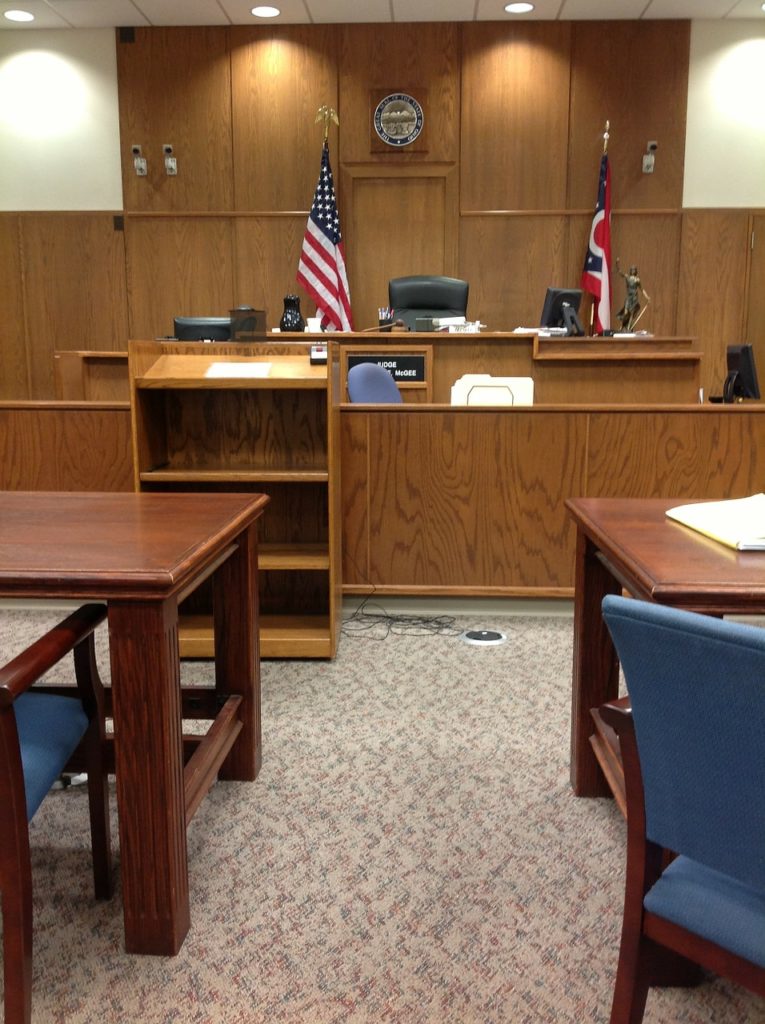
Updated June 06, 2018
Article by Daniel A. Levy, Esq.
Related: What will happen if I am served with a restraining order; Domestic violence; Harassment/Threats/Stalking.
Domestic violence is a very serious matter in New Jersey, as in most states in the U.S. If anyone feels that they are the victim of domestic violence they have quick and easy access to the legal system. The system is designed to quickly help those in New Jersey who have been victimized so that they are not subjected to further abuse after an incident. However, the system is not perfect, and in some cases people have abused the system and used it for things that are far outside of the law’s intended purpose.
We have already wrote a bit about the legal background involving restraining orders and what will happen after someone is served with a restraining order. To quickly summarize and provide background, the law essentially says that if a defendant committed one of the predicate crimes in the statute, there was prior domestic violence, and the victim is in reasonable fear that domestic violence will continue in the future, then the court will issue a restraining order. First, the order is temporary with a hearing date scheduled 10 days from the date of that order, and if the plaintiff can prove their case at the hearing the court will make it a final restraining order.

While the New Jersey legislature certainly had their hearts in the right place, there are some serious problems with this system, which can lead to abuse of the system. First, the statute lists a series of predicate criminal acts that could lead to a restraining order. When the average person thinks of “domestic violence” they probably picture a victim who has been assaulted, sexually abused, restrained, etc. And the law certainly protects victims of such abuse, as it should. But the law also lists many other things that most people wouldn’t necessarily associate with domestic violence. For example, the law lists harassment, criminal trespass, lewdness, and criminal mischief. These are extremely broad criminal violations, and in many cases people are criminally charged with those things after doing something relatively benign.
Many of the cases that I’ve seen in the Family Court regarding restraining orders involve relatively benign acts that occurred during a breakup or argument. For example, an ex-boyfriend/girlfriend may call the other 15 times and yell at them, or send the other a partially nude text message, or knock over the other’s garbage cans, or go to the other’s house uninvited and knock on their door demanding their stuff back. To be clear, none of these things are good things to do, but none of them are serious crimes. In the criminal court, none of them would be taken too seriously, either. However, in Family Court all of these things could be used as a basis to get a retraining order. Therefore, former partners who are simply upset at each other can and have continued their arguments in the Family Court by seeking restraining orders for these types of offenses.
In fact, even the prohibition against assault is often stretched in the restraining order context. Yes, there are many cases where a victim is physically abused and needs the courts protection to prevent further abuse. But “assault” is so broad because it prohibits causing “bodily injury”… any bodily injury. For example, a wife finds out her husband is cheating and slaps him across the face; or a wife takes her husband’s cell phone and while trying to grab it from her he scratches her hand. Again, these aren’t good things to do, but neither case falls into a category of a battered victim who requires immediate court assistance.
Another aspect that encourages abuse of the system is the fact that once a temporary restraining order is issued (and this is done after the judge hears only one side of the story) the defendant would be required to leave his own home if the parties live together. Most would agree that this is appropriate if the victim is subjected to real abuse, but probably not appropriate if the victim simply received a dozen mean text messages. Therefore, someone who is mad at their partner and just wants them out of the house may force that to happen immediately by filing for a restraining order based on something like harassment.
Further, there is also a presumption that a defendant subject to a restraining order will not have residential custody of any children the couple has together. Again, this is something that makes a lot of sense in many cases. But it can also be abused if the couple is involved in a custody dispute and one of them files a restraining order based on something relatively minor in order to win the custody battle.
In my experience, there is also a shortfall in the system insofar as judges in the family court tend to err on the side of granting the restraining order. What I mean by this is that the judge really should not order restraints unless there is a legitimate fear of future domestic violence such that court intervention is appropriate. This is a pretty subjective term. In my view, the courts typically have too broad of a view about who really needs the assistance of the courts. Obviously, a person subjected to a series of beatings does need the court’s help. But the flood of cases involving screaming matches, text messages, etc. may have victims who were technically victims of domestic violence, but many of them do not necessarily need the court’s assistance. After all, plenty of couples have verbal fights, screaming matches, etc. and break up and go their separate ways without incident.
All of this potential for abuse and the shortfalls in the system would not be such a big deal if restraining orders were not so serious. They are extremely serious and could have life-long impacts. A defendant may have to move out of the home, lose custody of their kids, lose the ability to own a firearm, lose the ability to hold all sorts of jobs, etc. So while a person may think lightly of a restraining order based on text messages or a screaming match, they should take it very seriously because under the law the court will definitely take it seriously.



